Wellbeing At Work Tips
Every day tips to support your mental health
Every day tips to support your mental health
These tips aim support day to day wellbeing at work and are brought to you by our Mental Health Consultant/Clinician Tenille Clark. To learn more about the Partners in Wellbeing Program at the Chamber please and to book in for a confidential session with Tenille, please navigate to our Wellbeing page.

De-escalate angry customers with CARE
Stress can manifest in different ways for different people. This can include both physical feelings and psychological distress. And although a little stress can be good for us a lot of stress over a long period of time takes its toll on our mental and physical health. Deep breathing techniques have been shown to improve the management of stress in daily life by slowing the heart rate and lowering blood pressure. If you begin to notice signs that your stress levels are rising, try taking 5-10 minutes to work through some guided breathing exercises. You can use an app such as CALM to help you or even a short breath exercise such as this video.

Difficult conversations with staff/ managers/colleagues
Sometimes when people are struggling, they find it difficult to let the people around them know what’s going on. However, sometimes the people around them will notice changes in their behaviour. If you notice a concerning change in an employee or co-worker, ask them … “are you ok?”
Remember to:
- Ensure that you are in a private, quiet, and comfortable place
- Ensure that you have the time needed to listen to their response empathetically
- Let them know the changes you have noticed that have prompted you to check in
- Highlight that you only want to support them
- Listen without judgement
- Encourage them to take action by seeking help from trusted loved ones or mental health professionals
Checking in on you colleagues and staff when you notice concerning changes in their behaviour or moods is crucial to supporting wellbeing in the workplace.
Stress can manifest in different ways for different people. This can include both physical feelings and psychological distress. And although a little stress can be good for us a lot of stress over a long period of time takes its toll on our mental and physical health. Deep breathing techniques have been shown to improve the management of stress in daily life by slowing the heart rate and lowering blood pressure. If you begin to notice signs that your stress levels are rising, try taking 5-10 minutes to work through some guided breathing exercises. You can use an app such as CALM to help you or even a short breath exercise such as this video.

Schedule in Joy to Boost your Mood
We all know that future stressful events can lower our current mood with worry, but did you know scheduling in, planning for and thinking about future leisure, relaxation, and celebration activities can boost your mood leading up to the event?
It may just be a simple plan to watch your favourite TV show, take a bath or have a chat with a friend, but if you know when your going to do it, you also get the joy of looking forward to it.
Giving yourself and your staff things to look forward to is another way to support day to day wellbeing.
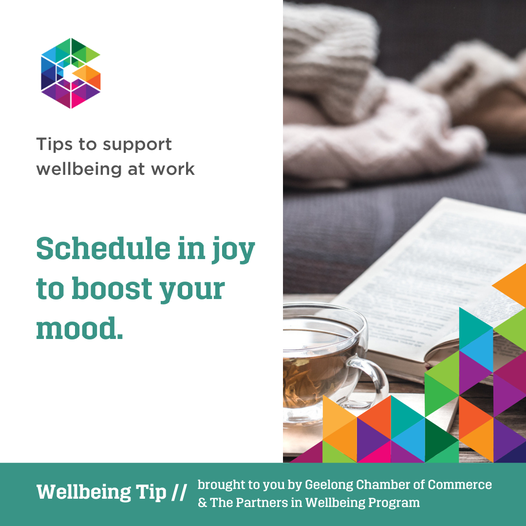
Take time to take a breath.
Stress can manifest in different ways for different people. This can include both physical feelings and psychological distress. And although a little stress can be good for us a lot of stress over a long period of time takes its toll on our mental and physical health.
Deep breathing techniques have been shown to improve the management of stress in daily life by slowing the heart rate and lowering blood pressure.
If you begin to notice signs that your stress levels are rising, try taking 5-10 minutes to work through some guided breathing exercises. You can use an app such as CALM to help you or even a short breath exercise such as this video.
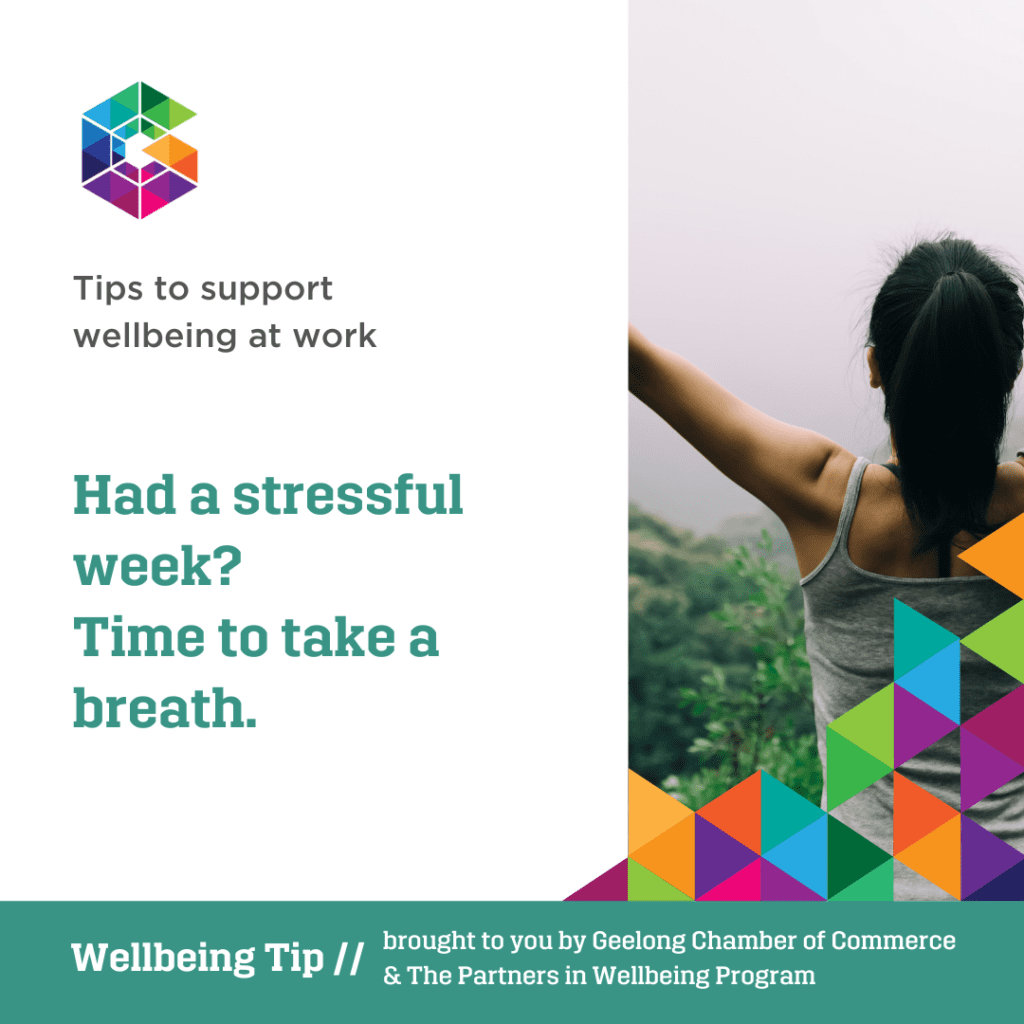
Greenery and plants can positively impact your mental health and wellbeing.
Being around greenery and in natural environments is known to have a wide range of positive impacts on human wellbeing including assisting with anxiety and stress reduction, decreasing depression, enhancing memory retention, increasing creativity, and enhancing productivity and attention (Hall, C., & Knuth, M.; 2019)
This is one of the reasons why the intergration of nature and natural elements is one of the key elements of the Well Building Institute’s Well Building Standards.
Introducing plants to your workplace or home office is a simple way to support yours and your staff’s day to day wellbeing.
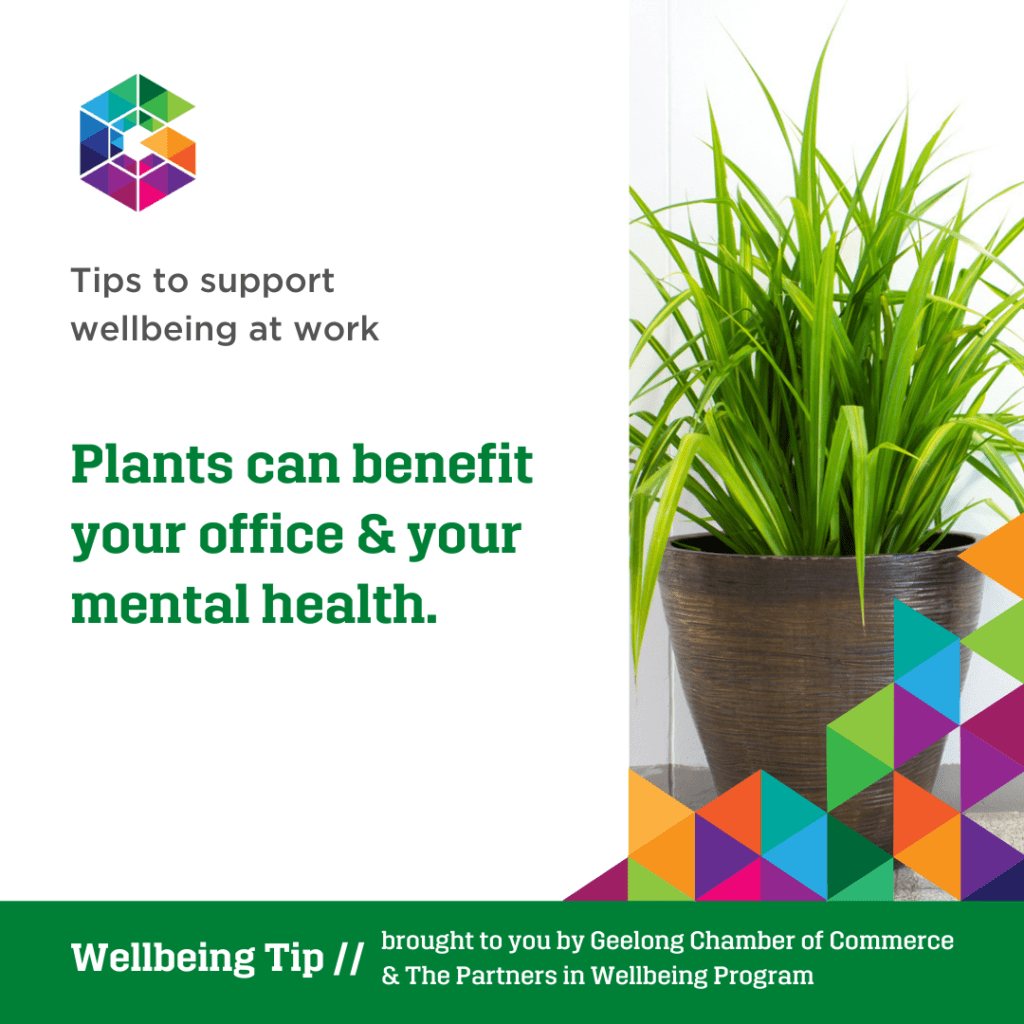
Staying hydrated has a positive impact on mood and cognitive function.
Water is essential for life, it is also a major part of almost all our major bodily functions; so it should come as no surprise that when a person is not properly hydrated their mood, their capacity to concentrate and their ability to focus can be negatively impacted (Young, H.A., Cousins, A., Johnston, S. et al., 2019; Liska, D., Mah, E., Brisbois, T., Barrios, P. L., Baker, L. B., & Spriet, L. L. (2019)
The recommended daily water intake varies and is impacted by many factors such as a person’s general health and gender, however approximately 10 cups of fluids for men and 8 cups for women is the rule of thumb (x).
By supporting your mood and cognitive function in this simple way you are more likely have a productive and successful workday.
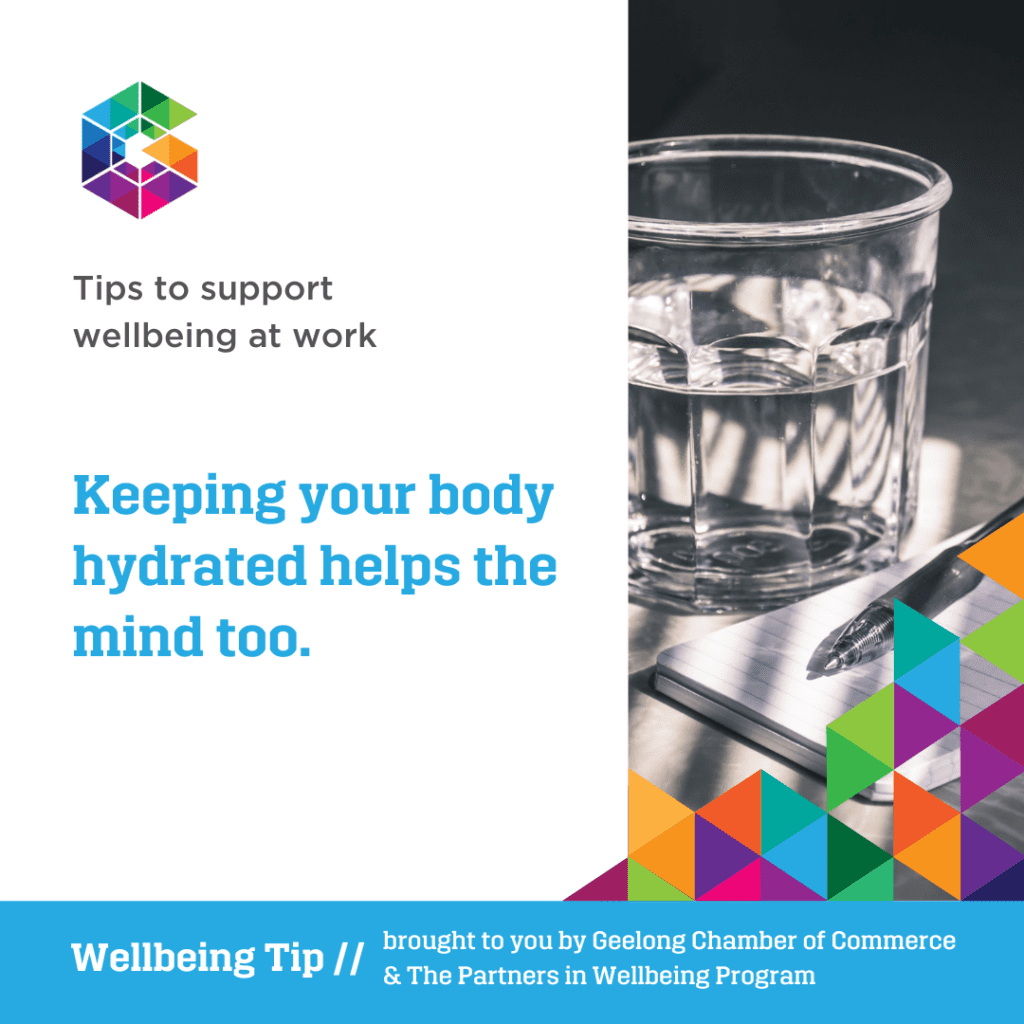
Take 15-20 minutes away from work to relax.
Setting yourself a wellbeing ‘to-do’ list can help keep you reminded to care of yourself, try listening to calming music or taking a walk. Have a chance to reset. Helpful tips to support your day to day wellbeing. Inlcude a wellbeing ‘to-do’ in your daily tasks. Putting a wellbeing ‘to-do’ on the list of things you intend to do for the day ensures that the reminder is there for when you need it. So when you have had a busy morning and your mind isn’t in the ‘self-care’ space, there is a reminder for you to take time out for yourself and re-set for the afternoon or the transisition from work to home.
Taking 15-20 minutes away from a stressful work day to do something that will help you feel good and re-set, is simple way to support your day to day wellbeing.
This might be:
- Taking a walk
- Having a quiet cup of tea
- Listening to calming music
- Calling a friend for a quick chat
- Watching funny video’s online
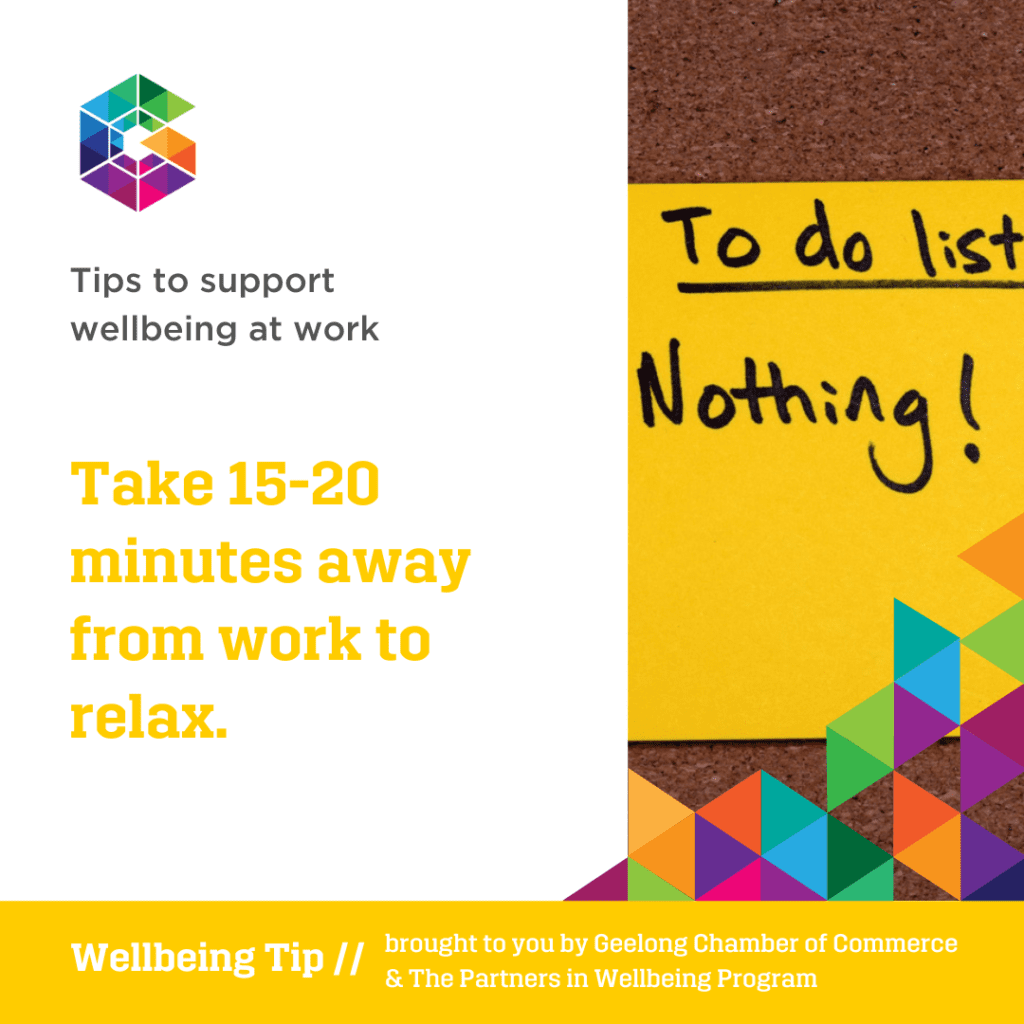
Explore Our Services & Resources
Look through the Business Directory, access Business Mentoring and more!
Get in touch with the Chamber team